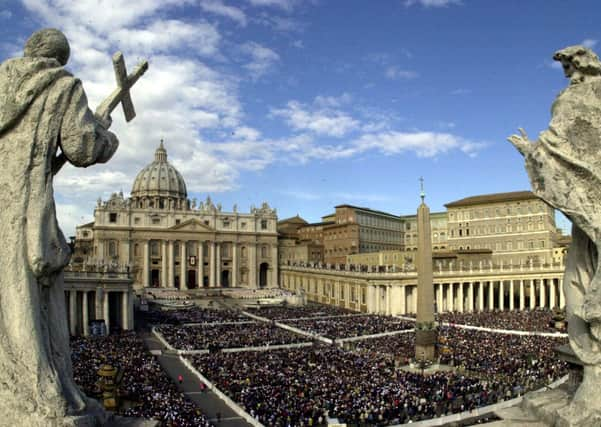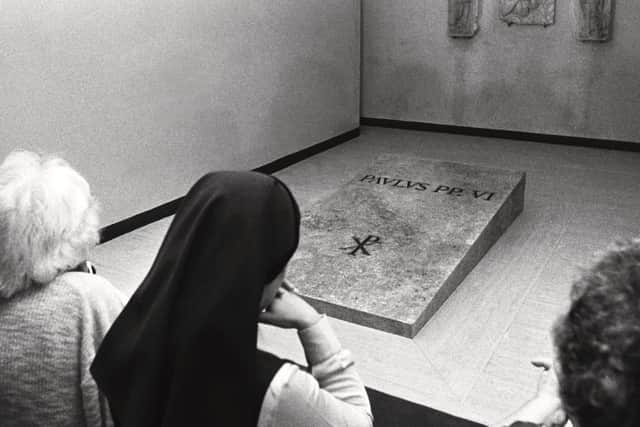Ultra-Conservatives call for probe into Pope’s death (1978)


The organisation, Civilia Cristiana, said a copy of the petition had also been sent to Cardinal Carlo Confalonieri, Dean of the College of Cardinals, to inform the group that rules the church in the interim period.
But Italian Cardinal Silvio Oddl said: “I know for certain that the sacred college will not take into consideration the eventuality of an inquiry and will not accept any check by anybody and will not even discuss the issue.
Advertisement
Advertisement
“We know for certain that the death of John Paul I was because of his heart ceased to beat due to natural causes.”


The Vatican said the 65-year-old Pope had died suddenly on Thursday, September 28, 1978, in his bed from a heart attack. Vatican sources said an autopsy was not conducted because doctors agreed it would not reveal anything more than was already known.
Church rules governing the period between two Popes did not call for an autopsy.
An Italian reporter attempted to question the Reverend Diego Lorenzi, the late Pope’s private secretary, on the autopsy controversy but he has snapped: “Don’t you, too, come and tell me the tale about the Pope having been poisoned.”
Advertisement
Advertisement
Pope John Paul I’s reign is among the shortest in papal history and his death has always been shrouded in conspiracies.
Councillors quit meeting after sympathy vote fails
Three councillors had walked out of a planning committee meeting in Hillsborough during this week in 1978 after a bitter row over a message of sympathy on the death of Pope John Paul I.
The row erupted when planning committee members of Lisburn Borough Council were asked to forward a letter of condolence on the Pope’s death to the Reverend William Philbin, Bishop of Down and Connor.
A resolution was moved by Alliance councillor Mr Seamus Close, as the start of the meeting but it met with strong opposition from DUP members.
Advertisement
Advertisement
When it was put to a vote, the resolution was defeated by eight votes to four.
Immediately Mr Close, Alliance colleague Mr Alex Boyd and SDLP member, Mr Billy McDonnell, left the council chamber.
Later Mr Close told the News Letter: “I expected opposition from people like the Reverend William Beattie, but the attitude of the Unionist members surprised me.
“They were spineless. They either voted against the resolution or abstained. Tonight they showed their true colours.”
Advertisement
Advertisement
Mr McDonnell said that he was “utterly disgusted” at the decision. He said: “This bigoted and intolerant decision of the council has only strengthened my resolve to ensure that never again will powers be delegated to district councils.”
He added: “I intend to ask the Secretary of State to appoint a commission to take over the workings of this belligerent council who are not prepared to work for all citizens of Lisburn regardless of class or creed.”
The only Unionist to vote in favour of the message of sympathy was UPNI councillor, Mr Cecil Kirkwood.
Meanwhile, Banbridge District Council had decided against sending a message of sympathy to the Vatican on the Pope’s death.
Advertisement
Advertisement
After a 7-2 vote against the message proposal SDLP member, Mr James Walsh said the decision was an insult to Roman Catholics and exposed the bigotry of the council.
By a majority decision the council agreed to send a letter to Buckingham Palace protesting against the Queen’s order that flags be flown at half mast after the Pope’s death.
DUP member, Mr James McElroy, said the council had been brought into disrepute when a message of sympathy was sent to the Vatican after the death of Pope Paul VI in August 1978.